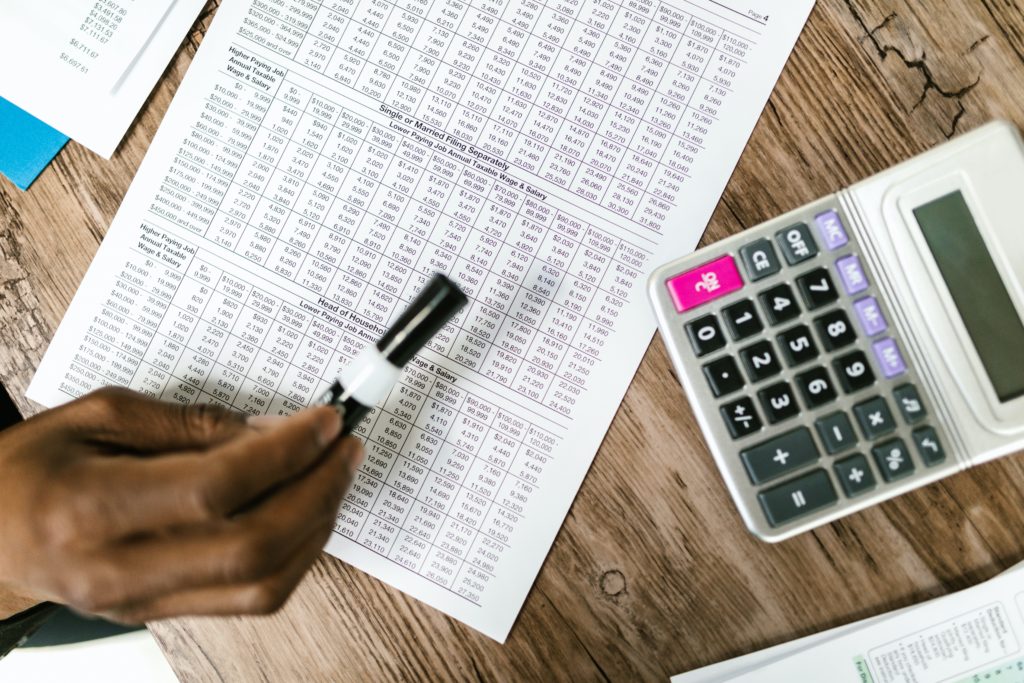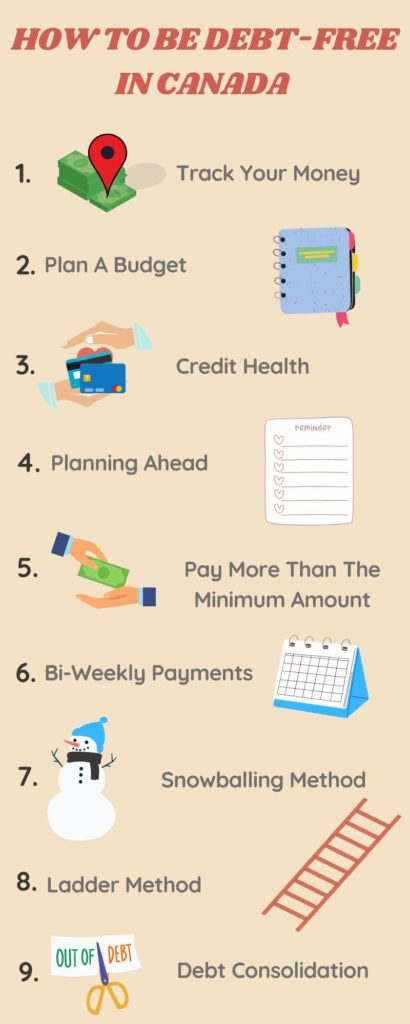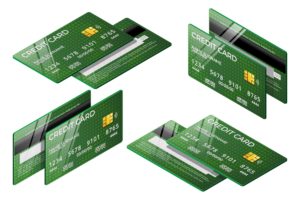How To Be Debt-Free In Canada?

Debt is a slippery slope- one small instance of unpaid debt might not seem dangerous, but it can grow fast until you have no financial stability to speak of. The situation is such that the possibility of it happening to anyone is quite high. In such cases, it is natural to panic and make more mistakes. Therefore, to avoid these circumstances, it is necessary to know some tips and tricks that will help you get out of debt as quickly as possible. Here, is a list that shows some of the easiest and quickest ways to become debt-free.


Track Your Money:
- Keep an eye on your spending habits. Take note of where you are spending the most money.
- Use a spreadsheet to make it easier and at the end of the month, calculate how much you have spent from your monthly income. The surplus money, that is the amount that you have left, can be used to pay off your debt.
- However, there may be times when you may have no money left over at month end. This clearly indicates that you must review your expenses and, if possible, reduce unnecessary ones.
Plan A Budget:
- Related to the previous point, this step is one of the most important things to remember when clearing debt.
- Creating a budget- which is also called a ‘spending plan’- allows you to handle your finances better, with clear boundaries for how much money you can spend in various places.
- While this task can often seem tedious, many apps provide readymade budget templates that make it easier to do. Money coaches and financial psychologists can also help you to plan an appropriate budget.
Credit Health:
- Credit cards are a commodity that can be helpful in many ways. But many cards have high-interest rates that can consolidate to add on to your debt.
- To prevent this from happening, the best practice is to pay off your pending credit debt at the end of each month, ensuring it doesn’t stack up.
- However, in the case of heavy debt, the safest option is to stop using credit cards altogether. Stick to cash or debit and therefore avoid extra bills to pay.
Planning Ahead:
- It is always best to plan for the future. Emergencies can crop up at any moment.
- The smartest thing to do is to keep a separate fund set up for these emergencies so that you wouldn’t have to dip into your savings.
- Apart from this, you should also have set aside funds for larger purchases that might become necessary, such as a bigger car, household appliances, family trips, and more.
Pay More Than The Minimum Amount:
- Most debts have a minimum amount that needs to be paid at regular intervals. For most people, it is tempting to pay the minimum amount each month and nothing more.
- However, this method is harmful and only prolongs your debt because the minimum amount only pays the interest. The principal amount of your debt remains without a dent.
- So instead of paying only the minimum amount, add an extra hundred- even such a small supplement can help you to become debt-free quicker.
Bi-Weekly Payments:
- It is common to make payments towards your debt only at the end of each month.
- But a simple trick many people don’t know is to make payments once every two weeks instead. This payment method adds up to the equivalent of adding an extra monthly installment each year.
- It helps to pay off your loans much faster than normal, thus clearing your debt sooner.
Snowballing Method:
- This is another helpful method to pay off your debt because it helps improve your mental state.
- Debt snowballing means starting with the debt that has the smallest value. You begin to pay this off first while paying only the minimum amount of other debts. Once the smallest debt is cleared, you start paying off the next smallest.
- This method helps to save more money on interest.
Ladder Method:
- The Debt Snowballing method is not always the most efficient.
- Therefore, another method that is used often and recommended by money coaches is the Debt Ladder method, which basically works in the opposite direction. This method requires you to focus on paying off the debt with the highest interest rate first.
- Once this debt is cleared, you can turn to the next highest debt and start paying it off.
Debt Consolidation:
- Some banks will consolidate all your separate loans into one, with a higher principal amount and a lower interest rate.
- This reduces a significant amount of the stress that comes with paying off debts, as it allows you to focus on paying off only one debt instead of several.
Being in debt is a terrible experience. Financial insecurity causes a lot of emotional and mental stress, leading to deteriorating health and relationships for many people. While this seems like a hopeless situation, it is important to remember that it isn’t impossible. Remembering the tips given above, anyone can be completely debt-free quickly and easily.



